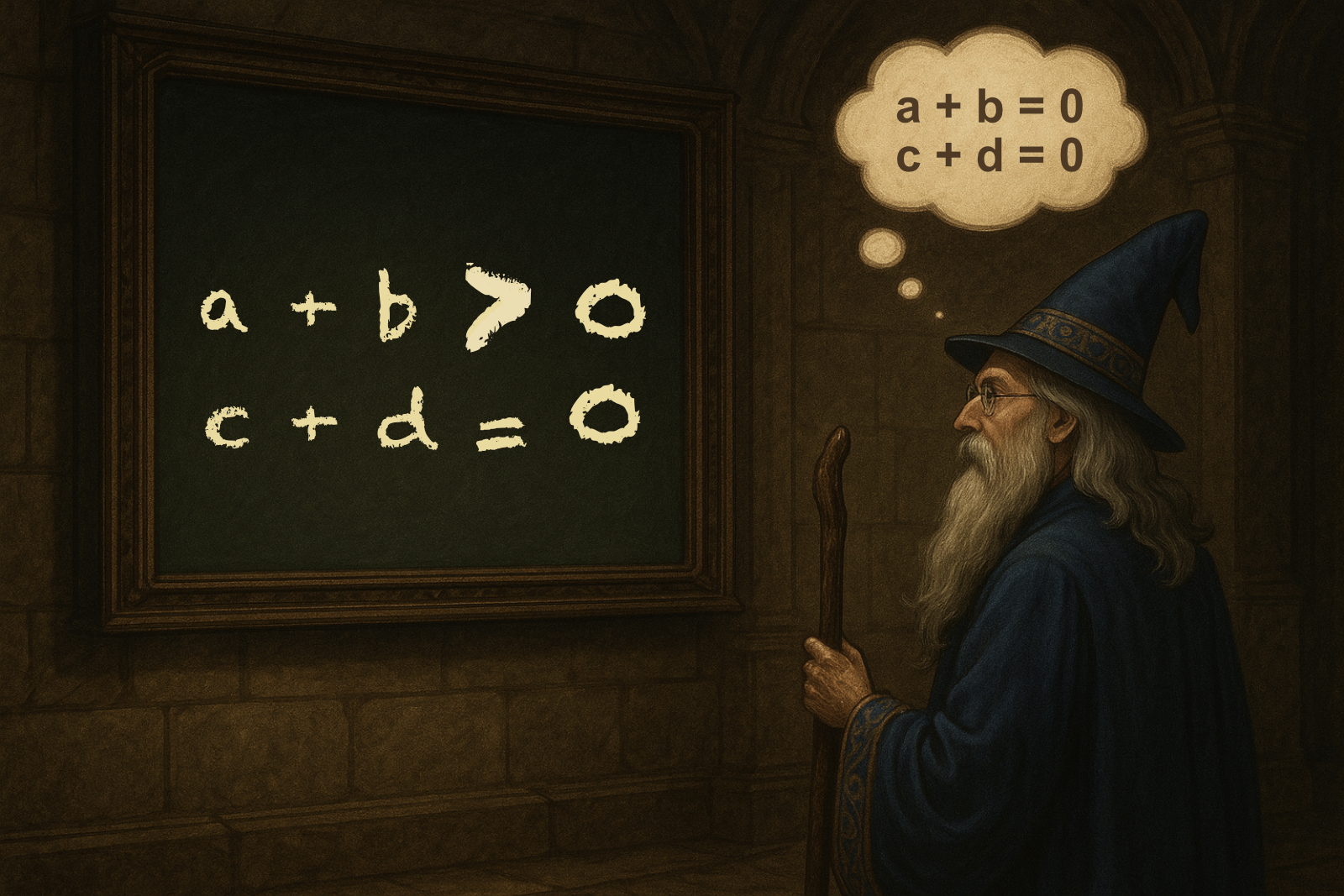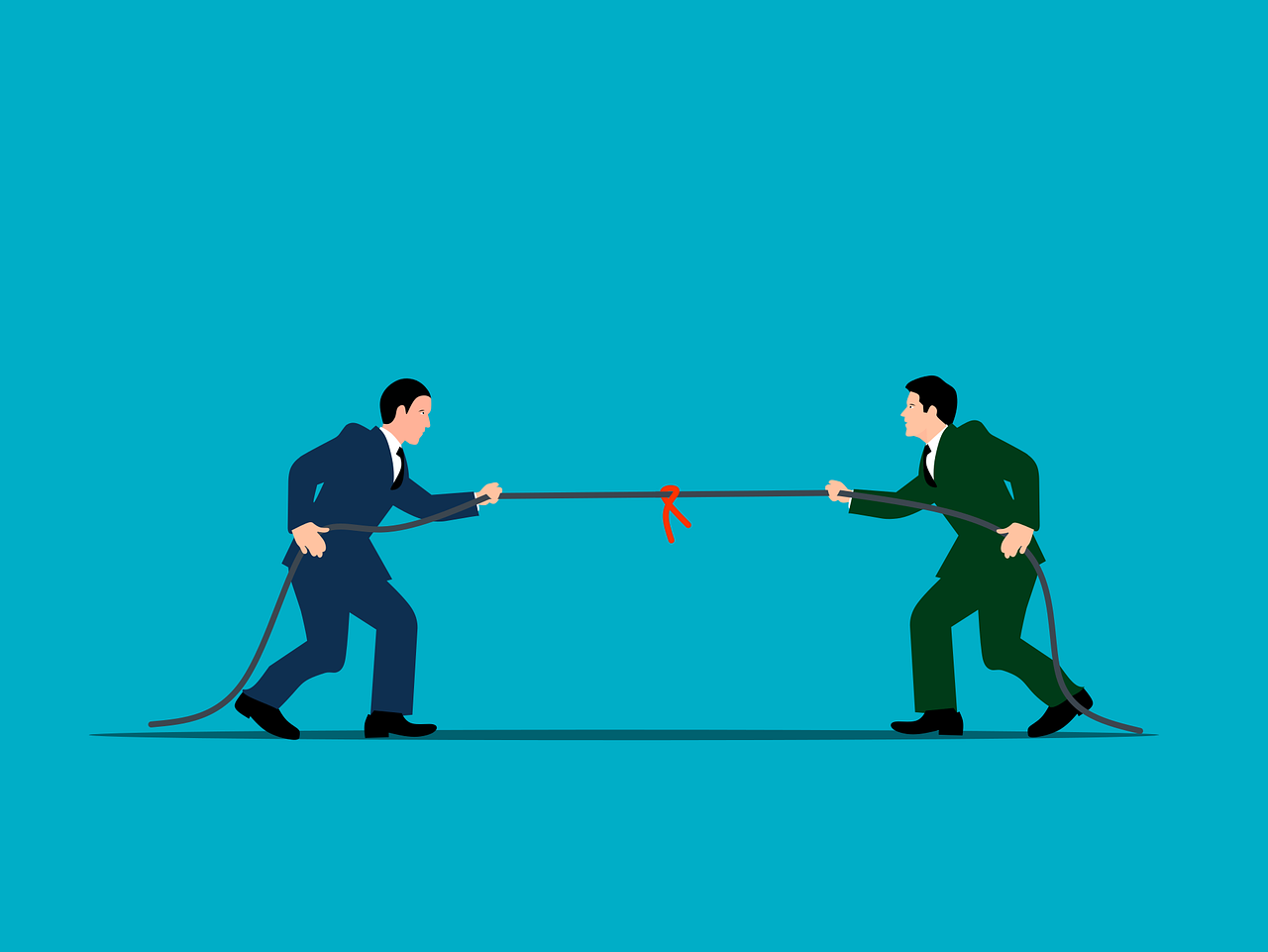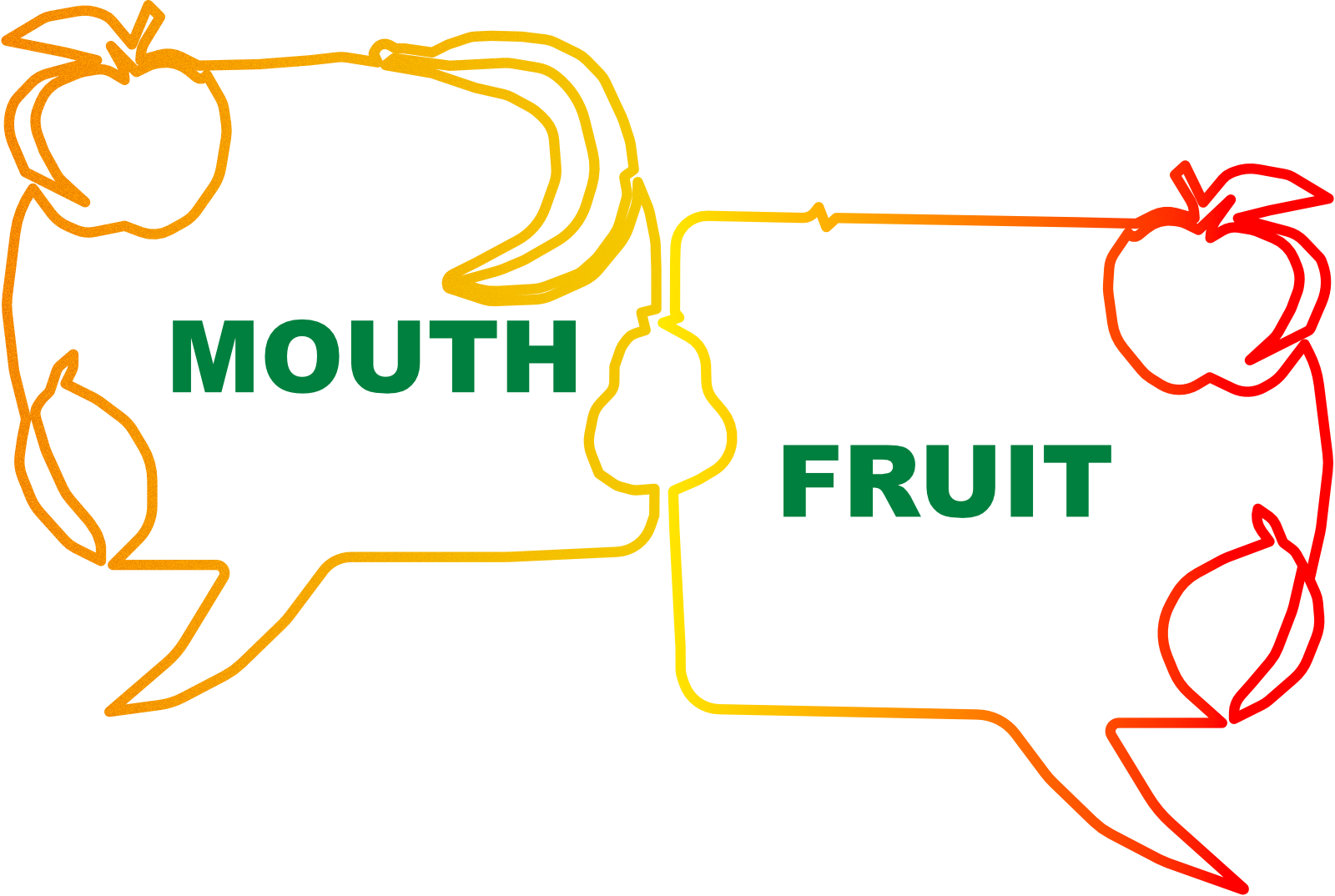The Pie is a Lie: ➌ What's that Zero-Sum Stuff?

Zero-sum. Zero-sum. What is that all about?
First the math and then the psychology.
Zero-sum games
In mathematics a zero-sum game analysis considers two states of a situation involving two or more variables, usually the state before an event and the state after that event. All variable values have the same weight, we are not comparing apples and oranges. If the the change in the sum of the variables is the same then, the event is considered zero-sum.
Let's look at a concrete example.
At the right time we are seated at the dinner table in the elaborate and distracting dinner hall. Looking at the names on the carved acorns, I see I get to sit next to the beautiful older sister. There are brothers. In a little bowl near each plate are four wrapped chocolates. I wonder when it is OK for me to eat one. The lights go out! It is silent. A little girl giggles. The lights come back on. The beautiful older sister exclaims, "Oh!" She now has only two chocolate candies. Then, she looked at the candies of her brothers. Two had five chocolates! She then said, "Ahah!" pointing at the candies as those two of the brothers are looking about innocently.
The sum of all the candies is the same.
But how is this zero-sum? The sum of the changes for each candy bowl is zero. The zero-sum is in the deltas. As the +1 is added to one little bowl, a -1 is added to another.
But what about the game?

Tug-a-war is an example. In the tug-a-war game one side tries to pull the marker on the heavy rope over a line a set distance from the center. This is played all over the world.
But, this is only an example of a zero-sum game if we assign scores of +1 to winning and -1 to losing. This might be clearer if the loser has to give his shirt tie to the winner. In the greater picture, normally a great fun is had by all, worth much more than a tie.
Now we get to the Great Zero-Sum Debate. Suppose the participants also get two more ties from the crowd. Blue and green start out with 1 tie and 1 tie. After Mr. Blue wins, he has four ties and Dr. Green has only two. The change in the sum is greater than zero. It is not a zero-sum game.
However, many will argue that it is still a zero-sum game. The ties given by the cheerleaders to the winners are not part of the game, but are a separate thing. Mouth Fruit doesn't use that sense at all. Mr. Blue and Dr. Green both consented to the game knowing about the the two ties for each combatant.
Any game can be converted to a zero-sum game by the addition of a scoring function of the observer's wishes. Beware of this. Some will insist that that is the correct measure, not what is right there in front of us. Why?
In 1944, John von Neumann and Oskar Morgenstern showed that a non-zero-sum game can be made zero-sum by adding in other "players". This of mathematical interest, but it doesn't fit the real world of creators.
The Wikipedia article is a good place to learn more. You can get into player grids and the Pareto optimal state.
In a zero-sum game, your loss is my gain. So, what is it when we both gain? It is not zero-sum anything. Most events or interactions are not zero-sum, and moreover have positive gains.
But what if it seems that they are zero-sum or will be?
Zero-Sum Thinking
Zero-sum thinking or zero-sum bias refers to the psychological inclination to see some or all situations as zero-sum games. Though the term comes from game theory, the mental processes are quite different. Zero-sum thinking is a psychological construct. It is a cognitive bias that forces a model on the world. It is a mindset.
In it broadest sense, a mindset can be interpreted as a mental model or lens that we use to interpret the world around us and guide our responses to our experiences. — Dr. Friedrich Götz

The zero-sum mindset, in particular, is characterised by the core belief that life in general works such that anything one person gains ... must come at the expense of another person.
This is also more than embracing logical fallacies. One can know what is illogical about blurted out statements, but the inclination is still there.
Some evolutionary biologists say this is a survival trait. Nonsense! Hog-wash! There is no basis for this. The causes are proximate, meaning the causes are from within one's own lifetime. Parental teaching, scarcity and entitlement beliefs are possible factors. (NB: Watch out! Some will twist this into a characteristic of some labeled outside group. Shun that. This needs to be addresses as a psychological concern, not a social campaign.)
Symptoms are a resistance to act cooperatively and a tendency to be competitive when there is no need. For example, a member of a team for a project in a college class might simultaneously sabotage the project and claim the title of the greatest contributor making the project great. We see s
This is not an addiction or a long-term hard-to-rectify condition. People move out of this cognitive bias when an effort to analyze thing clearly is undertaken. Let's be patient, let's let our learning and the other's learning move forward.
Now, this one is a hard for me. Do I have that cognitive bias? Do I avoid or rage against some interactions when there is no basis? Or course there are zero-sum and non-zero-sum situations, but do I tend to come in assuming they will be zero-sum? Am I afraid to exclaim the credit that should be given to a coworker? Do you hate going to the store because—unless you trick the shopkeeper—the shopkeeper is going to cheat you. Do you notice the guy who does not help a fellow student in a certification class, because he mistakenly believes the certification exam is graded on a curve? Are we afraid to talk to some person because one of us will lose?
Let's watch for this in ourselves. Let's seek the truth.
When it comes to fruitful dialogue, the pie is a lie.
